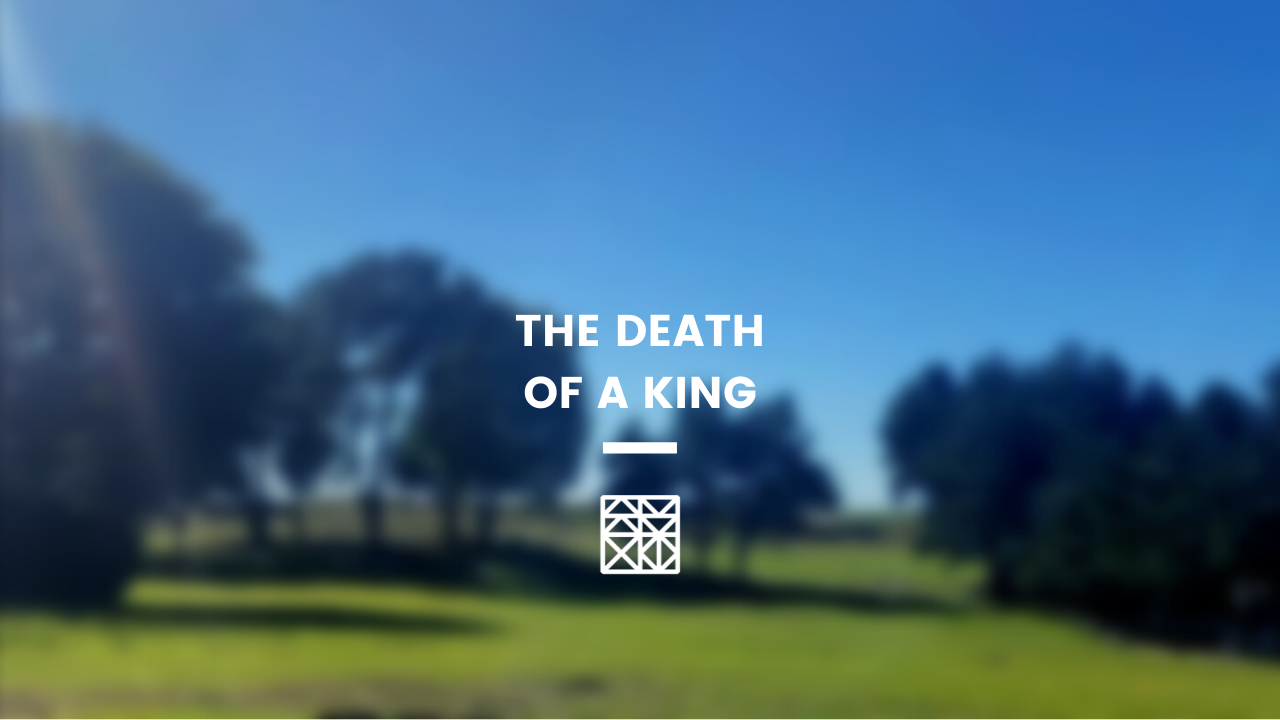2 SAMUEL 1 - THE DEATH OF A KING
2 Samuel 1
The second book of Samuel begins with solemn news. The first King of Israel has died, and David is now situated to take the throne as the second King of Israel (v. 1). The way that David responds when he learns of Saul’s death tells us a lot about David, the man after God’s own heart.
Saul died in battle on Mount Gilboa along with his three sons. A young Amalekite came running to David to share about what happened. The young man fell at David’s feet with torn clothes and dust on his head. He seemed eager to inform David about Saul and Jonathan’s death. Perhaps he thought David would be pleased about this news since he would finally be crowned as king (v.2-4).
David asked the Amalekite how certain he was about the king’s death. The Amalekite was certain because it was him that ultimately killed Saul. The man went on to tell about how by chance he happened to be on Mount Gilboa, and how he came upon Saul who was mortally wounded by his own spear. The man testified how Saul was hanging on by the last thread of life and that Saul asked the Amalekite to put him out of his misery. The man did what Saul had asked and he killed the king. He then took the crown and the armlet of Saul and brought them to David. The Amalekite called David “my lord” as he handed the crown and armlet to the new king of Israel (v. 5-10)
It seems that the Amalekite thought he was helping David by killing Saul and bringing David the royal crown. Yet, some wonder if the Amalekite’s story was even true. The Amalekite is not mentioned in other biblical accounts of Saul’s death (1 Samuel 31). Maybe the story was fabricated, and the man was seeking honor and reward from David. Regardless, the Amalekite didn’t understand the principle that David lived by - that the Lord would make David a King in his own timing. David had multiple opportunities to take vengeance into his own hands toward Saul, but he refused it. David would not lift a hand against the Lord’s anointed. He would not take the throne; it had to be given. David trusted that the Lord would deal with Saul according to his own way, and that God didn’t need David’s help.
God gives life and God takes away life – and man has no part to play in that.
The Amalekite was probably surprised by David’s response to the news. David and his men tore their clothes, wept, and fasted. The Amalekite was undoubtably surprised when David asked him, “How is it that you were not afraid to put out your hand to destroy the Lord’s anointed?” The Amalekite was certainly shocked when he heard David call over one of his young men and said, “Go execute him” The Amalekite was struck dead for his sin against Lord and the capital crime of killing the King of Israel (or for bearing a false testimony) (v. 11-16).
David then laments over the deaths of Saul and Jonathan. In a song known as “The Song of the Bow” we get a glimpse into David’s heart, and what he felt toward Saul and Jonathan.
· David didn’t see Saul as an enemy, rather David saw glory in Saul and sought to protect his reputation (v.19-20).
· David didn’t want anyone to be happy about Saul’s death. He felt that creation itself should mourn the death of the King of Israel (v. 21)
· David commended Saul and Jonathan for their military service; they were true warriors (v. 22)
· David recognized the unity, success, and strength that Saul and Jonathan brought to Israel (v. 23)
· David honored Saul for his leadership toward economic prosperity in Israel (v. 24)
· In all of this, David felt the greatest loss in Jonathan’s death. He was a friend of extraordinary love and someone who could never be replaced (v. 25-27)
The Song of the Bow shows us the heart of new King of Israel. David had a pure heart before God and a right heart before man, even toward his perceived enemy. As the second King of Israel, David will lead God’s people to even greater heights of unity, success, prosperity, victory, and love toward God. Still, David will have his own flaws as we will see through the book of Second Samuel.

